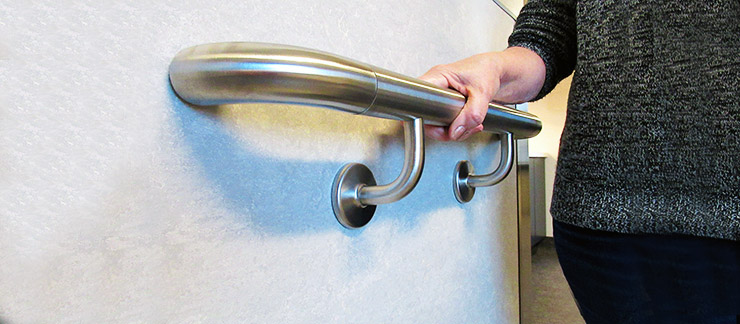
7 Safety Risks Caregivers See in Homes of Seniors
If aging-in-place is the right choice for your older loved ones, making sure their home is free of common household safety hazards is a critical component for their well-being. Unfortunately, some in-home safety risks can be overlooked by family caregivers and result in senior falls, injuries, and other preventable accidents.
Here are seven safety hazards our experienced Visiting Angels’ caregivers commonly encounter in homes of seniors:
1. Lack of slip guards on carpets and rugs
Anti-slip guards can prevent carpets and rugs from flying out from under your senior’s feet and causing a serious fall. Additionally, non-slip backing may prevent carpets and rugs from bunching up or becoming loose and causing a tripping hazard, which can be important if your senior uses a mobility aid such as a walker or cane.
2. Poor diet
Adequate nutrition is an integral part of your senior’s health and wellness. Eating unhealthy food, not eating enough, and an inability to safely prepare healthy meals are just a few common problems that could prevent your loved one from getting the nutrients he or she needs. An in-home caregiver can help by shopping for and preparing nutritious meals, managing food inventory, and ensuring your senior eats regular meals.
3. Outdated appliances
Outdated appliances — particularly stoves and refrigerators — that aren’t in good working order could lead to an overly warm house as well as undercooked or spoiled food. Old appliances could also be a fire hazard. Your loved one’s in-home caregiver can make sure appliances are functioning correctly and let you know about any problems.
4. Pets
Although cats and dogs can provide love and companionship for older adults, they can be a hazard when underfoot and not cared for properly. All pets should be vaccinated appropriately and should not be permitted to soil the house. An in-home caregiver can ensure pets do not cause your loved one to trip and can make sure they are fed and cared for as needed.
5. Clutter
Clutter — particularly in high-traffic areas of the home — can present a significant fall risk for older adults, so it’s essential to clear all walking paths. Kitchen countertops and other surfaces should also be free of clutter. In-home caregivers can keep tabs on clutter and help your loved one avoid a serious household accident.
6. Improperly equipped bathrooms
A bathroom designed for aging in place is essential for your senior’s safety. Lack of grab bars, elevated toilet seats, shower seating, non-slip bath/shower mats, and other accommodations could increase your loved one’s risk of a fall. Visiting Angels caregivers are trained to look for household risks and can make recommendations to make the bathroom a safer place for your older loved one.
7. Cords
Long cords – and oxygen or IV tubing – can pose a tripping hazard for older adults. Additionally, the use of power strips or extension cords could cause an electrical overload that increases the chances of a power outage or fire. A trained caregiver can observe and address these hazards before they cause serious harm.
Although this list details some of the common household hazards encountered by Visiting Angels caregivers, a lack of help around the home when needed is perhaps the most significant risk to your older loved one.
Professional Home Care Assessments
Our highly trained, compassionate caregivers realize family caregivers are often unable to be there for their older loved ones 24/7. Our in-home personal care professionals can step in when you can’t and recognize potential household hazards to lower the risk of falls, injuries, and accidents.
Once you've determined that your loved one may require home care, you'll want to meet with our professional care providers. We will perform a complete home care assessment before starting care to determine your loved one's care needs. This makes it possible to precisely plan the right care according to specific concerns.
During a home care assessment, care specialists will meet with you and your loved one to discuss your loved one's greatest age-related or disability-related challenges, your loved one's lifestyle and daily schedule, and your overall goals for care.


